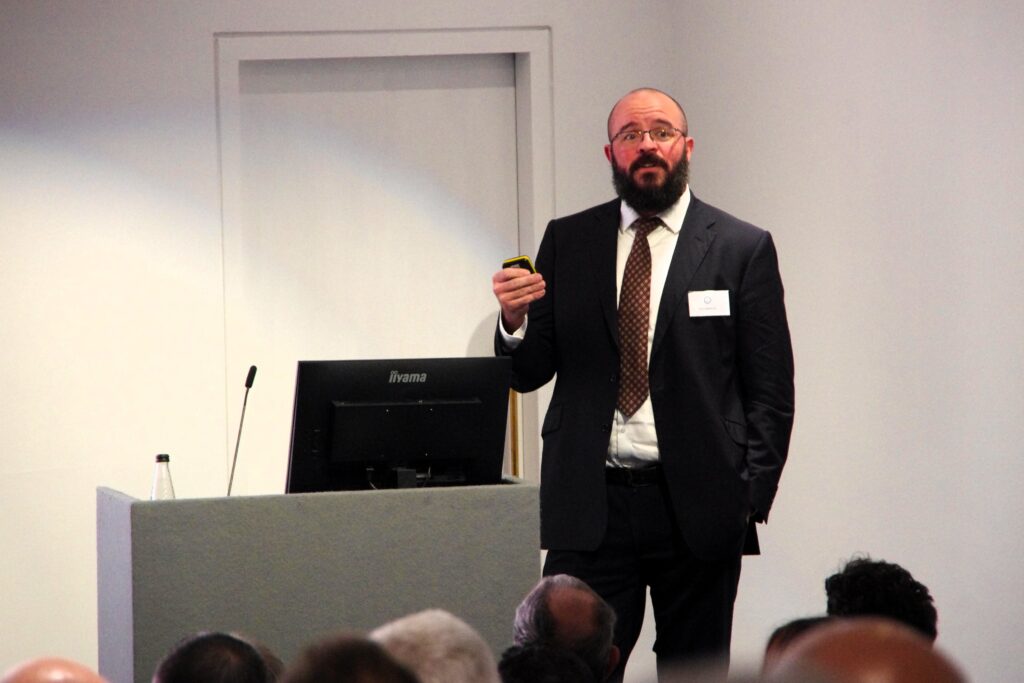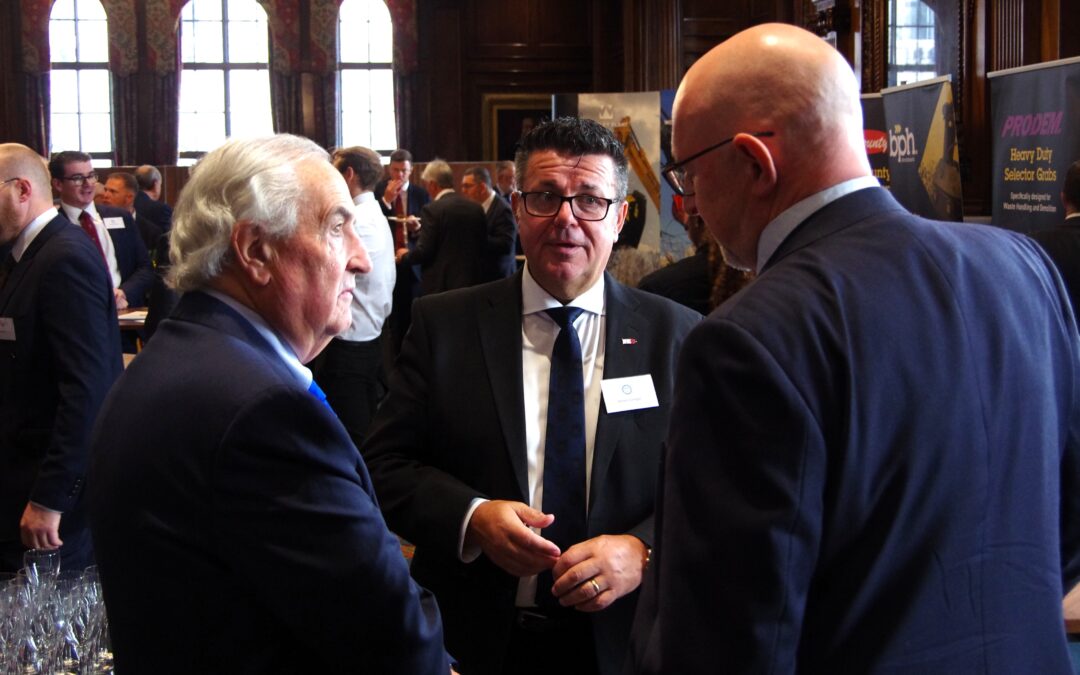More than 100 demolition experts were on hand for pioneering thought leadership talks at the Institute of Demolition Engineers’ autumn seminar in London this month.
Held at One Great George Street in the heart of Westminster, the seminar featured lectures from those at the cutting edge of the demolition industry, as well as some of the doyens of innovation in demolition engineering.
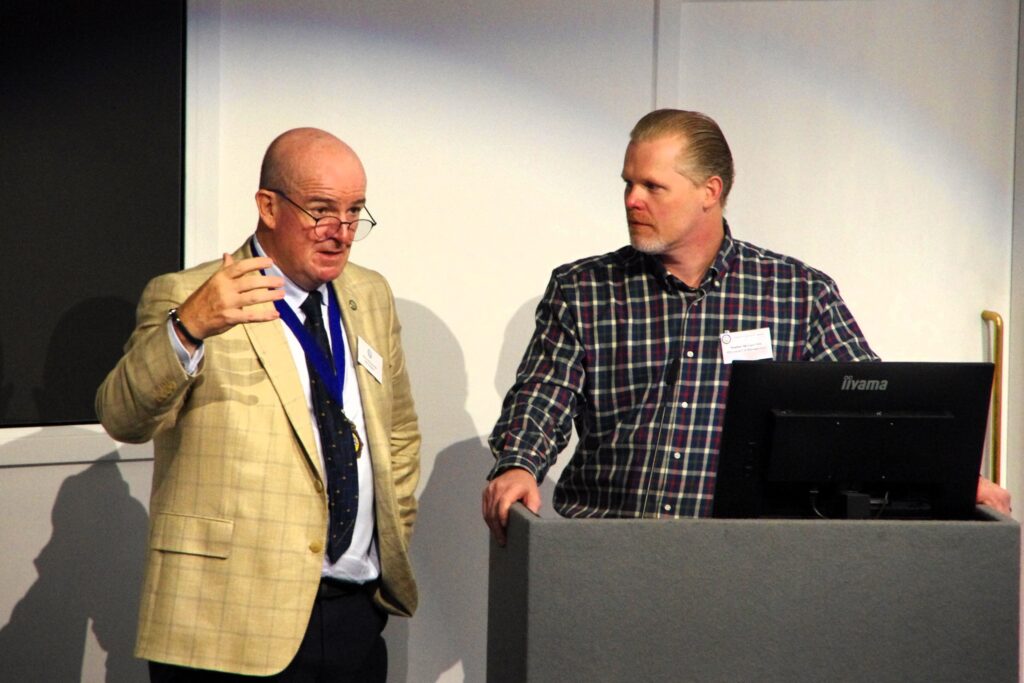
Subjects discussed ranged from innovative demolition techniques to the deployment of artificial intelligence in the tendering process, as well as updates on legal and insurance matters.
The seminar was led by new IDE chairman Adrian McLean, who also took the opportunity to outline plans for the IDE’s 50th anniversary gala ball next year, to be held on September 19th at The Belfry, the iconic golf club near Sutton Coldfield outside Birmingham.
Speaking about the state of the demolition industry and the IDE’s role within it, Adrian was unequivocal about the challenges faced and the necessary solutions.
“We face the same challenges as every other industry,” he said, “most notably attracting and keeping young people, and making sure that they’re engaged.
“In my view we’re sending too many young people to university. We need more in the workplace, doing jobs they can do with their hands – then if they’re really good at it, then can progress to management level or set up their own businesses.
“People have looked down their noses at careers like construction and demolition for too long. It’s going to be a huge part of our nation’s economy for the next generation and we need to encourage our young people into work, to learn responsibility and become decent contributors to society.”
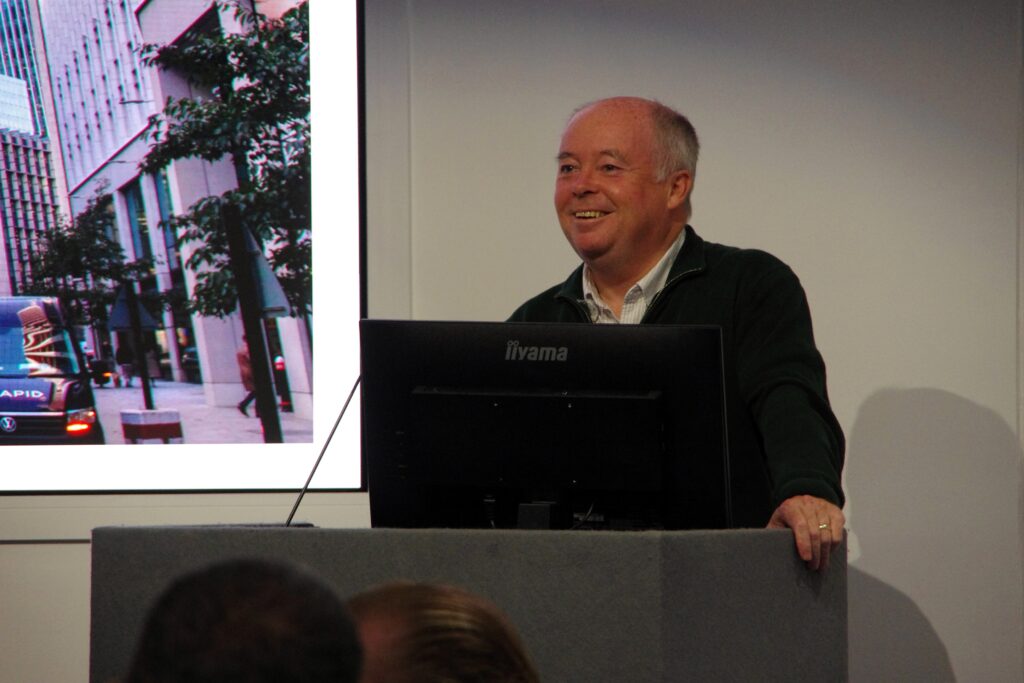
Among those giving talks were two young engineers James Simpson and Nic Matheson from McGee, who talked about their innovative façade retention system, particularly for retaining facades on historic structures.
Also speaking was Rory Kilpatrick from Tender Mole, a ground-breaking software app which uses AI and company information to manage and compile tenders.
The two talks were the finale on the day’s schedule, following a series of six other discussions before lunch.
They included a talk from Keltbray’s Tim Lohmann, who urged demolition leaders to innovate and pioneer new technologies in order to tackle the opportunities presented by the low carbon economy. “Someone once invented the hydraulic hammer, and we found a use for it,” he said. “What are we going to do to create the machines and methods which will help us deliver materials into the circular economy?”
Paul Dennis from insurance broker Fenchurch encouraged delegates to consider the unique challenges of insuring the demolition industry, including particulars such as padlock proof in case of plant theft, policy exclusions and professional indemnity.
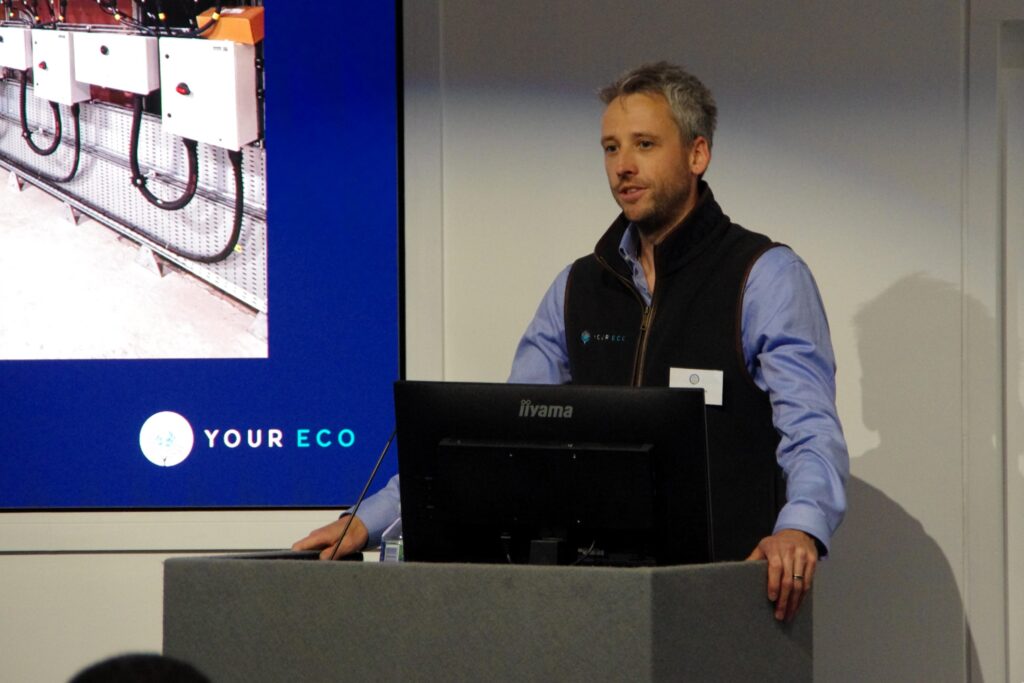
Next up was David Kocurek, pioneer of telescopic demolition rigs, who was accompanied by his niece Rebecca Kelly and received an honorary fellowship of the IDE from Adrian before his talk.
David said: “Thanks to you guys in the demolition industry I have had an amazing time over the course of my career.
“I love making these machines – I’ve had a brilliant life and a large part of it has been due to my relationships in the demolition industry. I never dreamed that our family name – because that’s what’s important to me – would be known around the world.”
Laurance Mosley from Bath-based YourEco discussed the DC current risks when decommissioning solar installations safely – a pressing issue as the first systems installed begin to reach their end of life.
Then Wayne Bagnall MBE discussed asbestos and demolition challenges in heritage buildings, with a presentation on some of the incidents through partial demolition projects, and ongoing health risks despite falling death rates from asbestos contamination.
Also speaking were Natalie Thorpe and Jack Trowsdale from solicitor firm Kennedys – specialists in motor offences, they discussed defending drivers on offences from careless driving up to death by dangerous driving, as well as licensing issues.
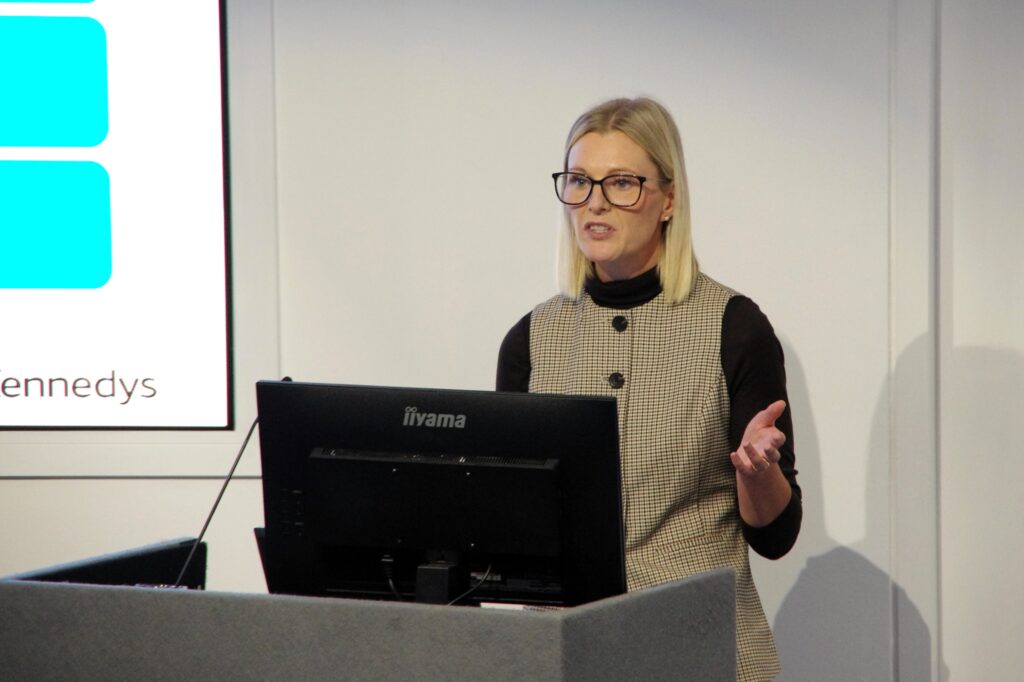
Jack said: “In my experience, transport liabilities are more front of mind among companies for whom transport is their prime activity, rather than those whose transport is ancillary, such as in demolition. It’s important the contractors are of good repute and that stipulations of the conditions under which licences are granted are satisfied with the commissioner.”
Summarising the day, Adrian said: “As an institute we have access to some brilliant expertise, as well as innovative minds which are creating the future of our industry.
“The IDE has an important role to play in showing the world how demolition should be done properly, now and into the future.”
